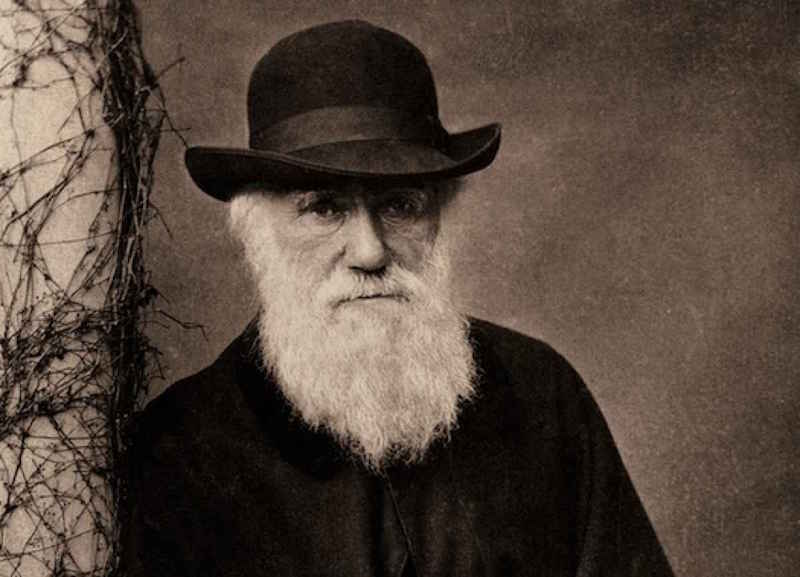Theory of Evolution
Episode #6 of the course “Ideas that changed the world”
Every society has an “origin story,” which tells of the creation of the planet and the different types of life that inhabit it. Most creation stories attribute humanity’s distinction from plants and animals as a supernatural or divine gift, but the English naturalist Charles Darwin forever changed human understanding of life on Earth when he published The Origin of Species in 1859.
Darwin formulated a natural, rather than supernatural, explanation for the variation of Earth’s lifeforms. He proposed that creatures physically adapt to their environments, and that those best adapted are likely to pass on their traits in a process known as “natural selection.” Individuals with well-adapted traits are more likely to obtain food, shelter, and mates, and they are better at warding off or fleeing from threats—this is commonly called “survival of the fittest.” This “survival” is applied not only to physical adaptations but to social ones as well.
 Charles Darwin
Charles Darwin
In Darwin’s time, people were familiar with “artificial selection”; two livestock animals were often bred because of their desirable traits, with the strong chance their offspring would exhibit those traits. But people had not considered that nature worked this way.
The idea of evolution shook up understanding about Earth’s history, and it helped explain 19th-century anthropological and archeological discoveries. Scientists began to understand why planetary life changed over time, and how to alter those changes.
Discoveries such as the structure and function of DNA further developed evolutionary theory. Nowadays, the evolutionary process is used frequently to develop medicines. Based on understanding the evolutionary pathology of diseases, doctors can prevent, cure, and treat diseases more effectively. In addition, environmental scientists can take steps toward saving endangered species because of the knowledge of environmental adaptation.
Evolution has deeply impacted the ideology of divine origins. Today, many people understand their spiritual documents and history differently than they did in Darwin’s time, largely because of his theory. Debate continues about how best to understand religious texts in light of evolutionary science.
Quotes
“I have called this principle, by which each slight variation, if useful, is preserved, by the term of Natural Selection.” by Charles Darwin
“The mystery of the beginning of all things is insoluble by us; and I for one must be content to remain an agnostic.” by Charles Darwin
“The theory of evolution, like the theory of gravity, is a scientific fact.” by Neil deGrasse Tyson
“Today, the theory of evolution is an accepted fact for everyone but a fundamentalist minority, whose objections are based not on reasoning but on doctrinaire adherence to religious principles.” by James D. Watson
“Evolution was far more thrilling to me than the biblical account. Who would not rather be a rising ape than a falling angel? To my juvenile eyes, Darwin was proved true every day. It doesn’t take much to make us flip back into monkeys again.” by Terry Pratchett
Recommended books
“The Origin of Species” by Charles Darwin
“Undeniable: Evolution and the Science of Creation” by Bill Nye
Share with friends

